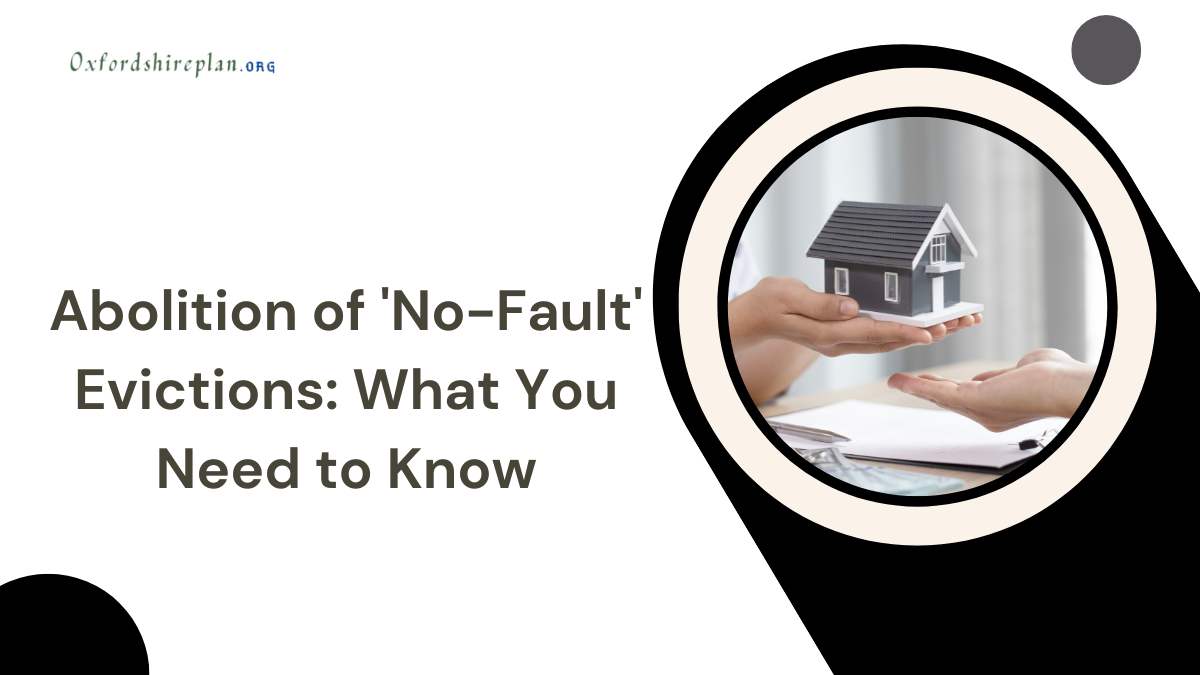The days of ‘no-fault’ evictions may soon be over. This week, Michael Gove, Secretary of State for Levelling Up, Housing, and Communities, confirmed that Section 21 ‘no-fault’ evictions will be abolished before the next general election. This statement comes after earlier concerns that the ban might be delayed due to the need for court reforms. However, Gove assured in a recent interview that the government will fund the courts adequately to manage the changes and handle the increased case load.
Contents
- What Is a Section 21 Notice?
- Timeline of the Section 21 Ban
- Transition Period for Landlords
- Key Changes in the Renters (Reform) Bill
- 1. Abolition of Assured Shorthold Tenancies
- 2. Changes in Rent Arrears and Grounds for Eviction
- 3. Landlord’s Right to Sell the Property
- 4. Changes to Antisocial Behaviour Grounds
- 5. New Mandatory Grounds for Landlord Non-Compliance
- Rent Increases Limited to Once a Year
- Pets in Rental Properties
- Tenant Notice Requirements
- Penalties for Unlawful Evictions
- Preparing for the Future
What Is a Section 21 Notice?
In the UK, a Section 21 Notice allows a landlord to evict a tenant without providing a specific reason, as long as they give two months’ notice after the fixed term has ended. This practice, often referred to as a ‘no-fault’ eviction, has been a point of contention, with critics arguing that it provides little security for tenants. On average, a tenant in the UK receives a Section 21 Notice every three minutes, highlighting the widespread use of this eviction method.
The government’s decision to abolish this provision aims to create a fairer private rented sector, ensuring tenants are not unfairly removed from their homes. Recent figures from the Ministry of Justice reveal a significant increase in tenant evictions by bailiffs using ‘no-fault’ evictions, underlining the need for change.
Timeline of the Section 21 Ban
Since 2019, the government has been promising the end of Section 21 evictions. However, uncertainty lingered about when these changes would take place. With the second reading of the Renters (Reform) Bill occurring on 23 October 2023, the Bill is now at the Report Stage, where amendments are being considered. Gove’s recent announcement suggests that the ban will likely take effect before the next general election, although it’s unclear if the entire Bill will be implemented simultaneously or in stages.
The government is expected to make further announcements regarding housing and planning reform, which should provide more clarity on when the changes will be enforced.
Transition Period for Landlords
The current proposal includes a transition period to give landlords time to adjust to the new law.
- Six months for all new tenancies after the Bill is implemented.
- Twelve months for all existing tenancies.
This transition will allow landlords to make any necessary changes to comply with the new regulations.
Key Changes in the Renters (Reform) Bill
The Renters (Reform) Bill introduces several key changes to the Housing Act 1988. Below are some of the most significant reforms landlords, tenants, and agents need to be aware of:
1. Abolition of Assured Shorthold Tenancies
- All tenancies will now be periodic, replacing the current Assured Shorthold Tenancies.
- Landlords will still need to comply with deposit protection rules for all grounds except for grounds 7A and 14.
2. Changes in Rent Arrears and Grounds for Eviction
- Grounds 8, 10, and 11 for rent arrears remain mostly unchanged. However, tenants must now receive four weeks’ notice (instead of two) under these grounds.
- A new Ground 8A has been introduced for repeated rent arrears. Under this ground, tenants who are in two months’ arrears on three separate occasions will be subject to eviction. This addresses the current issue where tenants avoid eviction by paying off some arrears just before the hearing.
3. Landlord’s Right to Sell the Property
- A new Ground 1A allows landlords to regain possession if they wish to sell the property, provided the tenant has lived there for at least six months. However, it’s unclear what proof landlords will need to provide.
- Ground 14 will be amended to cover behaviours “capable of causing” nuisance or annoyance, rather than the current wording “likely to cause.” This change will broaden the scope of actions deemed antisocial, making it easier to evict for disruptive behaviour.
5. New Mandatory Grounds for Landlord Non-Compliance
- Ground 6A allows landlords to be evicted if they breach an enforcement notice or fail to obtain a required license for the property.
Rent Increases Limited to Once a Year
Under the new Bill, landlords can only increase rent on an annual basis, and they must use the statutory Section 13 procedure. This change means that landlords cannot rely on contractual rent increase clauses, providing tenants with more stability.
Pets in Rental Properties
One notable provision in the Bill is the right for tenants to request permission to keep a pet. The landlord must not unreasonably refuse the request and has 42 days to provide an answer. If consent is given, the landlord can ask for pet damage insurance to cover potential damages.
Tenant Notice Requirements
Tenants must give their landlord two months’ notice when ending a tenancy. A shorter notice period can be agreed upon in writing.
Penalties for Unlawful Evictions
Under the new law, civil penalties will range from £5,000 to £30,000 depending on the severity of the offense. Local authorities will have the power to impose financial penalties as an alternative to prosecuting landlords for unlawful eviction or harassment.
Preparing for the Future
Although the exact timeline for the abolition of Section 21 is not yet confirmed, it is essential for landlords, tenants, and agents to stay updated and prepare for these upcoming changes. The transition period offers a window to adjust, but understanding the new requirements is crucial to staying compliant and avoiding potential penalties.
Click Here To Know More

I am a dedicated lifestyle and fashion enthusiast, always looking for the latest trends and timeless styles. With a flair for creativity and a passion for self-expression, I provide fresh insights and tips on elevating everyday living and personal style.
















